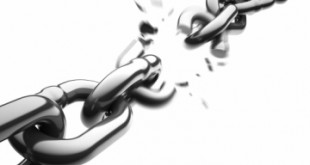Steve Keen speaks below on the catastrophe that is the Eurozone, and this is lecture 7 that is part of Keen’s course at Kingston University in the UK.[embedded content]
Read More »Dani Rodrik on behavioural challenges (VIII)
Dani Rodrik on behavioural challenges (VIII) How would you react if a renowned physicist, say Richard Feynman, was telling you that sometimes force is proportional to acceleration and at other times it is proportional to acceleration squared? I guess you would be unimpressed. But actually, what Dani Rodrik does in Economics Rules amounts to the same strange thing when it comes to theory development and model modification. In mainstream neoclassical theory preferences are standardly...
Read More »O Holy Night
[embedded content] Jussi — still no. 1!
Read More »Dani Rodrik and the ’empirical turn’ in economics (VII)
Dani Rodrik and the ’empirical turn’ in economics (VII) In Economics Rules, Dani Rodrik maintains that ‘imaginative empirical methods’ — such as game theoretical applications, natural experiments, field experiments, lab experiments, RCTs — can help us to answer questions conerning the external validity of economic models. In Rodrik’s view they are more or less tests of ‘an underlying economic model’ and enable economists to make the right selection from the ever expanding ‘collection of...
Read More »Confusing mathematical masturbation with intercourse between research and reality
Confusing mathematical masturbation with intercourse between research and reality No real problem worth solving can be solved without some basic research. Therefore the engagement of faculty and students on real problems yields basic research problems whose solutions are of practical significance. Furthermore, the validity of these solutions can be tested in the most effective way known: in application. This avoids one’s confusing mathematical masturbation with intercourse between research...
Read More »Between debt and the devil
Between debt and the devil [embedded content]
Read More »Dani Rodrik on math and models (VI)
Dani Rodrik on math and models (VI) According to Dani Rodrik — as argued in Economics Rules — an economic model basically consists of ‘clearly stated assumptions and behavioral mechansisms” that easily lend themselves to mathematical treatment. Furthermore, Rodrik thinks that the usual critique against the use of mathematics in economics is wrong-headed. Math only plays an instrumental role in economic models: First, math ensures that the elements of a model … are stated clearly and are...
Read More »Bootstrapping and The Münchhausen Trilemma
Bootstrapping and The Münchhausen Trilemma The Münchhausen Trilemma is a term used in epistemology to stress the impossibility to prove any truth even in the fields of logic and mathematics. The name Münchhausen Trilemma was coined by the German philosopher Hans Albert in 1968 in reference to a Trilemma of “dogmatism vs. infinite regress vs. psychologism” used by Karl Popper; it is a reference to the problem of “bootstrapping”, after the story of Baron Münchhausen, pulling himself and the...
Read More »Dani Rodrik and not so transparent user’s guides to models (V)
Dani Rodrik and not so transparent user’s guides to models (V) In Dani Rodrik’s Economics Rules it is argud that ‘the multiplicity of models is economics’ strength,’ and that a science that has a different model for everything is non-problematic, since economic models are cases that come with explicit user’s guides — teaching notes on how to apply them. That’s because they are transparent about their critical assumptions and behavioral mechanisms. Hmm … That really is at odds with yours...
Read More »Dani Rodrik disses rethink economics students (IV)
Dani Rodrik disses rethink economics students (IV) Economics students today are complaining more and more about the way economics is taught. The lack of fundamantal diversity — not just path-dependent elaborations of the mainstream canon — and narrowing of the curriculum, dissatisfy econ students all over the world. The frustrating lack of real world relevance has led many of them to demand the discipline to start develop a more open and pluralistic theoretical and methodological attitude....
Read More » Heterodox
Heterodox







